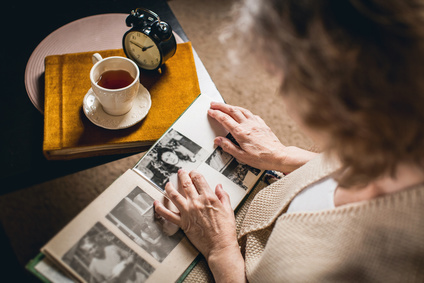We’ve all been there. You hear a song playing on the radio and it takes you back to a perfect night spent 20 years ago with your better half. Or maybe you can’t seem to shake the longing to relive your days as a young parent. Don’t worry, you’re not alone. In fact, a study carried out by The New York Times revealed that the average person feels nostalgic at least once a week, often more.
A bittersweet longing for the past
 In a nutshell, nostalgia is a bittersweet longing for the past. It’s sweet because it conjures up memories of the good old times. But at the same time, it’s bitter because it goes hand in hand with the knowledge that those times have passed, and will never return.
In a nutshell, nostalgia is a bittersweet longing for the past. It’s sweet because it conjures up memories of the good old times. But at the same time, it’s bitter because it goes hand in hand with the knowledge that those times have passed, and will never return.
As you get older chances are you’ll experience more and more nostalgia. After all, you have so much to reflect on. So is it something you should be embracing, or pushing away. Well, it depends on who you ask.
Interestingly, research indicates that nostalgia tends to raise its head during periods of transition. For example, moving towards retirement. Even though you have so much to look forward to, you may find yourself wishing that you could rewind a few decades and relive sun-drenched days at the beach with your kids. Or go even further and be a carefree child yourself.
A stabilising, empowering force
As for the question of whether nostalgia serves a purpose? According to some researchers it can be an incredibly powerful stabilising force. It encourages people to relive positive memories that occurred in the past, which offers an outlet of escapism from negative or neutral experiences in the present day. In turn this can help to strengthen your sense of self. With this comes confidence and reassurance, which can arm you with the courage to confront your fears and rise to challenges. So, rather than simply trapping yourself in the past, nostalgia can liberate the mind from negativity and spark personal growth.
Clay Routledge, a nostalgia expert at the North Dakota State University explains, “Nostalgia serves a crucial existential function. It brings to mind cherished experiences that assure us we are valued people who have meaningful lives.”
Building relationships
Nostalgia can often seem like an immensely personal emotion. However, when shared by a group of people it can be a powerful social tool. For starters it can boost social confidence by reminding a person of their “glory days”. Furthermore, it can bring people together and spark connections by creating a sense of camaraderie.
Keep it real
As enchanting as nostalgia can be, experts remind people that it’s often idealised. This means that the mind tends to focus only of feelings of joy and happiness, as opposed to the negative emotions that may also have been present at a certain time. Basically, the mind can be a little bias and it’s important to realise this.
Comparison free nostalgia
We love the idea of embracing nostalgia without comparing the “good times” with anything else. Often nostalgia goes hand in hand with the idea that the past is being compared with the present, and concluding that the past was implicitly better. Cue the classic “those were the days” comments. Instead, some experts maintain that the best way to enjoy nostalgia is by simply savouring the memories without making comparisons. This way you can relive the joys of your past without compromising how you feel about your future.
So should you let yourself be swept away by nostalgia? On one hand, it can be a useful way to harness the past, lift the mood and create hope for the future. On the other, it can become all consuming. The key is to walk the line and recognise both the pros and the cons.









Join the Discussion
Type out your comment here:
You must be logged in to post a comment.